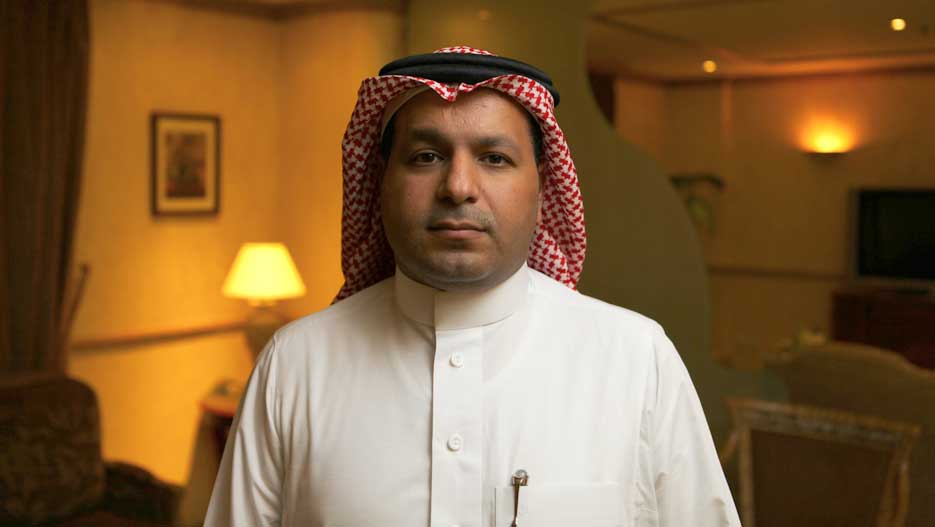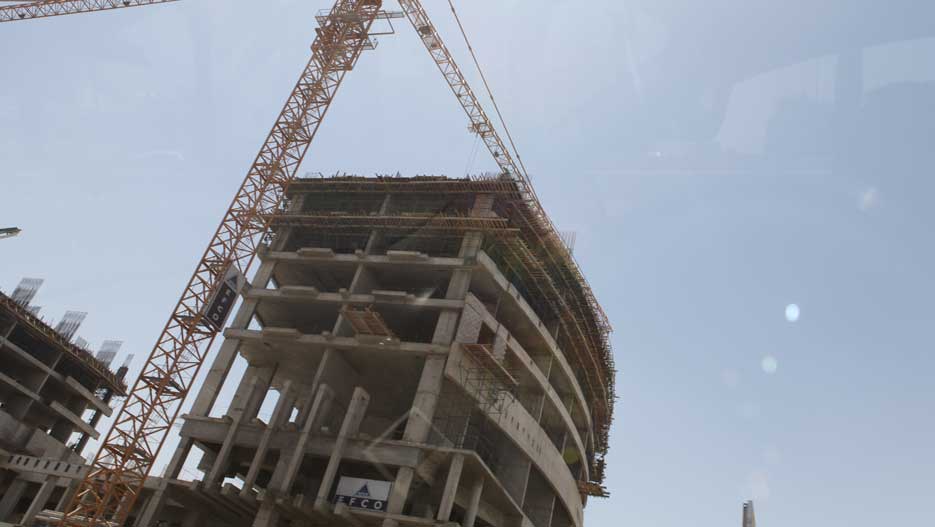Steel Industry in Saudi Arabia: Demand for Steel Projected to Grow
Hussain A. Al-Nafisi, CEO of Absal Steel
Our previous policy to become self-sufficient in wheat resulted in extremely high consumption of available water resources. Subsequently the Government has taken steps to phase out wheat cultivation by 2016.
Interview with Hussain A. Al-Nafisi, CEO of Absal Steel

The transportation facilities that the government is building now are just to help industry and the economy. I think the steel industry is very important now because of the amount of construction happening in the country. First of all, Saudi Arabia is still in desperate need of developing its infrastructure. We badly need more housing projects; accommodations are very poor. The majority of the population is young and they really need housing for the next 10 or 20 years. I think the amount of construction will increase and along with that, of course the steel business will always be booming.
Regarding the steel industry, there are many newcomers in the market.
Yes, actually our company started business 30 years ago and at that time there was only one steel plant, owned by SABIC. After that, newcomers entered the market –Ittefaq, Rajhi, and now recently, Solb Steel. Those are the major manufacturers of steel in the Kingdom. We are downstream, doing the cut and bend, wire mesh, straightening, and drawing of this material. This is stage two. The others are doing stage one of this industry.
The current capacity of all of these companies combined is about 8 million metric tons annually but the local demand is from 10 to 12 million tons, so we are still in need. I think more newcomers will join the market within the next few years.
Isn’t it wiser for the kingdom to just import cheap Chinese steel instead of producing it at home when the Chinese factories are churning out tremendous amounts and dumping prices?
That is okay for other industries but not for steel. You are right, maybe you can just import steel from anywhere but steel is a basic industry and the demand will be growing for the next 20 years as everybody can see. I think it’s wiser to have the steel here because the demand now is 10 to 12 million tons annually. I think for the next five years it will be even more. So even then, we will not produce enough.
The other thing is that the government is not investing any more in this business; it’s all private business. We are still importing some steel and we will continue doing so in the future because the demand is growing more than the supply in the country. For example, for the last two or three years, the total production increase in Saudi Arabia was about 1.5 million tons. SABIC also expanded and the newcomer Saudi Steel entered the market. The total increase for the last 1.5 years was only 1.5 million tons but the demand increased by about 4 or 5 million tons.

What fuels that demand?
It is fueled by governmental projects, infrastructure, transportation and very importantly, housing projects. In fact, 70% of the Saudi population does not own any houses so they have to build their own houses. Plus the majority of them are still youth and not married yet. There will be even more demand for housing in the future. I think this area will help the demand to grow even more in the future.
Of course this helps the diversification efforts away from the hydrocarbons and toward the industrialization of Saudi Arabia.
In the general overview, yes you are right. Other industries are there. The government is trying to change the old policy of dependence on oil. The petrochemical projects and other industries, and possibly the automobile industry, are being developed.
You are in the downstream industry. How much do you produce per year and what are your strategic goals and targets for 2014 and 2015?
We are doing downstream work, specializing in cut and bend. We started in 1984 and we added different lines over time, including wire mesh, block mesh, and cold drawing. Now horizontally we are thinking of doing epoxy-coated and galvanizing as well. Quantity-wise, we have been in different stages of growth but last year it was 240,000 metric tons. This year we are planning to reach 300,000 tons. We are expanding our factories and will open in Jeddah as well as increasing our capacity in Riyadh. With God’s help, maybe within two or three years we will reach our plan of 400,000 tons.
Do you feel that Saudi Arabia can become the regional leader in manufacturing and export to other countries in the Gulf?
It is happening now in the Gulf; there are no other industrial countries around the Gulf area. But to be honest, we are really still not in the heavy industries. We are still in the light industries. So the road is still long from now.
What are some of the challenges of doing business in Saudi as a private sector company? What are the obstacles you are facing in your operations and how can you relate that to the business environment in general?
Fortunately, most of the obstacles we were facing before have now started to move. First of all, speaking honestly, we had a problem with the legal authority in Saudi Arabia. Now it is really strict. Before, when somebody wrote a cheque for you or something, it was sometimes useless. Now it is very different. When you have a cheque or promissory note or anything from your clients that is money in your hand. You can go to the courts immediately within five days and you can get your money. This really helps. That started only one year ago.
The second obstacle is the bureaucracy of the government; it’s much better than before but there are still a lot of obstacles. The labor problem is also there but I think that is temporary because they want to clean up and now they started giving all investors what they need. Fortunately, most of the problems are really starting to be solved. We are very positive about the future.
What are some of the elements that support your optimism?
First of all, the new policy of the government to invest everywhere – horizontally and vertically. You see the diversity now everywhere, with all kinds of projects. Before it was just in petrochemical and the oil industry but now you can see new projects happening everywhere. The government’s overall plan is to develop the infrastructure and no economy can grow without infrastructure, especially transportation. You can see how many trains, metro projects, and roads are underway. Within five years it will be amazing; imagine how many thousands of kilometers there are. So I think that the government will help and they will continue with this, because there is no other way. That is why I am optimistic.
What about oil prices? Could this be a cause for concern if they suddenly drop?
It is true that the price of oil is a very important factor in our economy, but do you think it will go down in the near future?
Many people say yes, but most of them say no, it won’t go down.
I don’t think it will go down because the demand is too high and the demand is also growing. The major factor in oil prices is actually China and India. The lifestyle in China and India is much different than before; their dependence on power sources is much higher than before. The population of China itself is over 2 billion now and India is about 1.2 or 1.5 billion now so if they have changes in their lifestyle, that means they are depending on electricity, cars and oil. I think there is no way the demand will become low and there is no way the price will go down.
Regarding Saudization, the government has embarked on programs to employ Saudis. How is the private sector accepting a 55% Saudization rate?
In industry, it is about 15%. It actually depends on the region as to how difficult it is. If you are in the southern region, it will be very easy to get laborers from there. That is about 3,000 km from here so it’s a very different culture. It’s not the same here. What we have done is to concentrate on administrative and high-level staff. It will be much easier to recruit them. It is a challenge to recruit Saudis and has been for the last three or four years.
Six or seven years ago, the government started to send the younger generation abroad with many international programs. This program has 170,000 Saudi students abroad. Now if you come to my office you can see three or four CVs from really qualified people – with Masters Degrees, Engineering degrees, and other degrees. They are really good. It was nothing like before when it was really difficult to find an engineer. You would find about 10 companies fighting for the same person, but now we have many and they have good qualifications.
Please talk about your certification. Of course the market is not saturated at all so you have no problems with selling, but at the same time you have to sell quality products.
In the Saudi Arabia market, we are following the ASTM standard which is the American steel standard, although we can also produce according to the BSI standard which is the British standard. Those are the most well-known standards in the world. There is also a German standard and a Japanese standard but they are not widely used. We follow the American standard and provide quality products for our customers. Our goal is to simply provide the best possibly quality for our customers. We are also ISO 9002 certified which we achieved two years ago. We are trying our best to provide the best quality to our customers.
Can you tell us about your financials, if that is public information?
We are not a public company so we cannot disclose that.
You said you were planning to expand to 400,000 tons. Are you going to open new factories?
Yes, we booked the land for it in the Sudair industrial area and we will build a new plant there. It is about 60,000 square meters. With that, I think we can reach our goal of 400,000 metric tons annually.
So far you have one plant?
Yes, we have one plant now and that is stage one. Stage two will open soon in Jeddah; it is a small surface plant with a capacity of about 35,000 to 40,000 metric tons annually.
What is the best place to invest in industry in Saudi Arabia, in your opinion?
It depends who your target customer is and where you get your material from. This is the main question everywhere when you want to start a new business. Where do I get my material and where are my customers? In steel now, most of the customers are in Riyadh, Jeddah, Mecca and Medina and now north and south in Jizan also.
What about the industrial cities like Yanbu?
These are for heavy industry and I think they are fully occupied now. But they have opened a new city in Al-Kharj, Sudair, and Jeddah. You can see them all on MODON’s website. I think in the last two years they opened 12 or 13 new industrial cities. They are not zones – they are big cities. There are the major cities like Jeddah, but there are others like Sudair. There is Al-Kharj and Jeddah and then there is one north of Medina. I don’t remember all of them but you can find all of them on MODON’s website; they are really big cities.
Is there anything you would like to add about Saudi?
I invite everyone to visit us to discover for themselves, I guarantee them happy surprises.